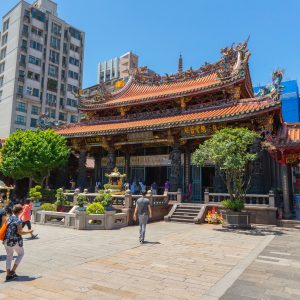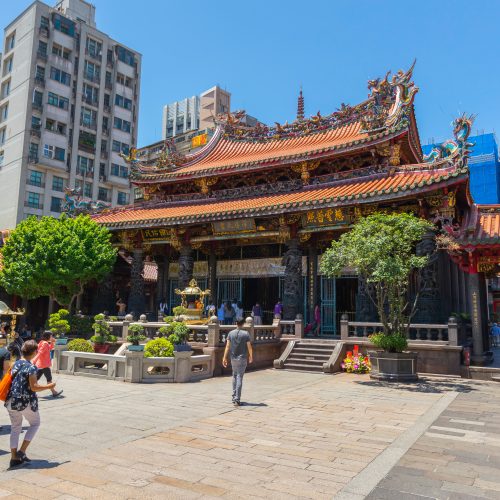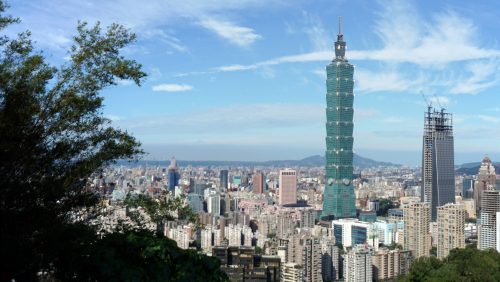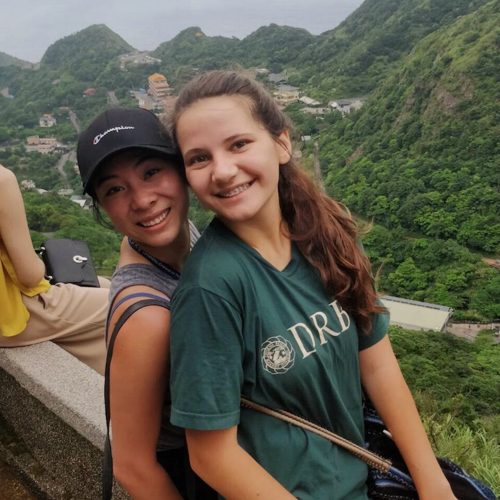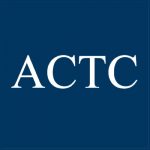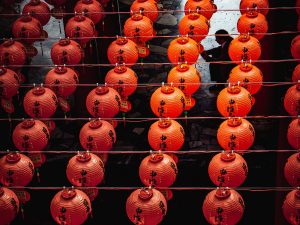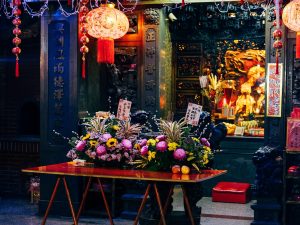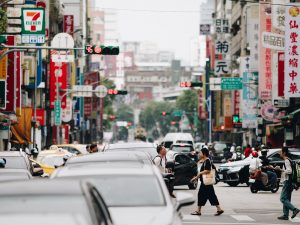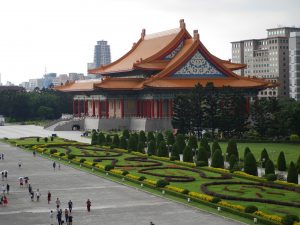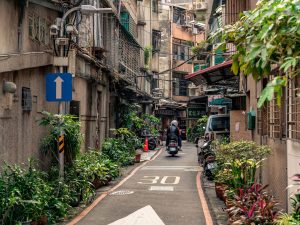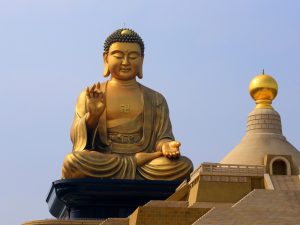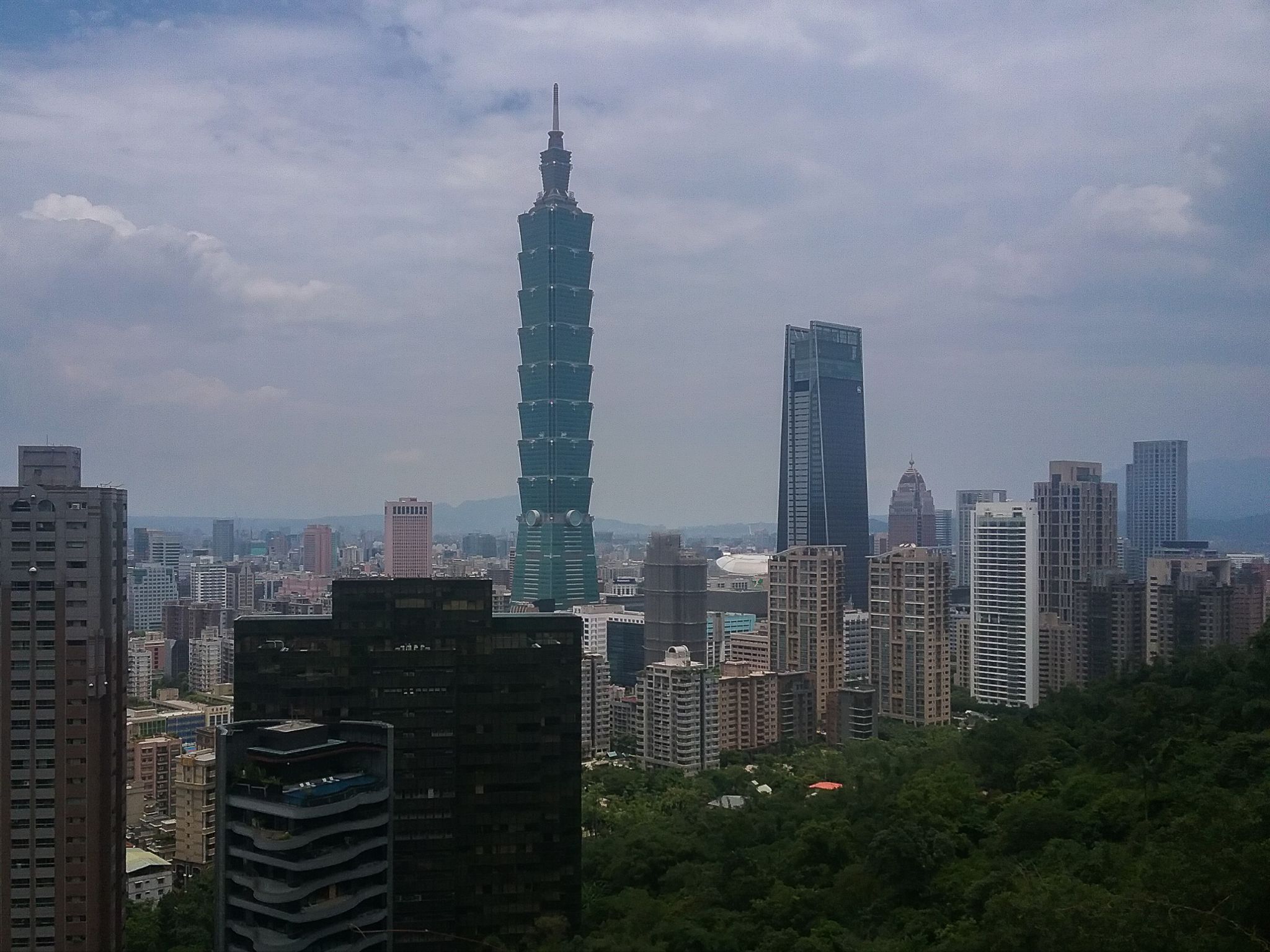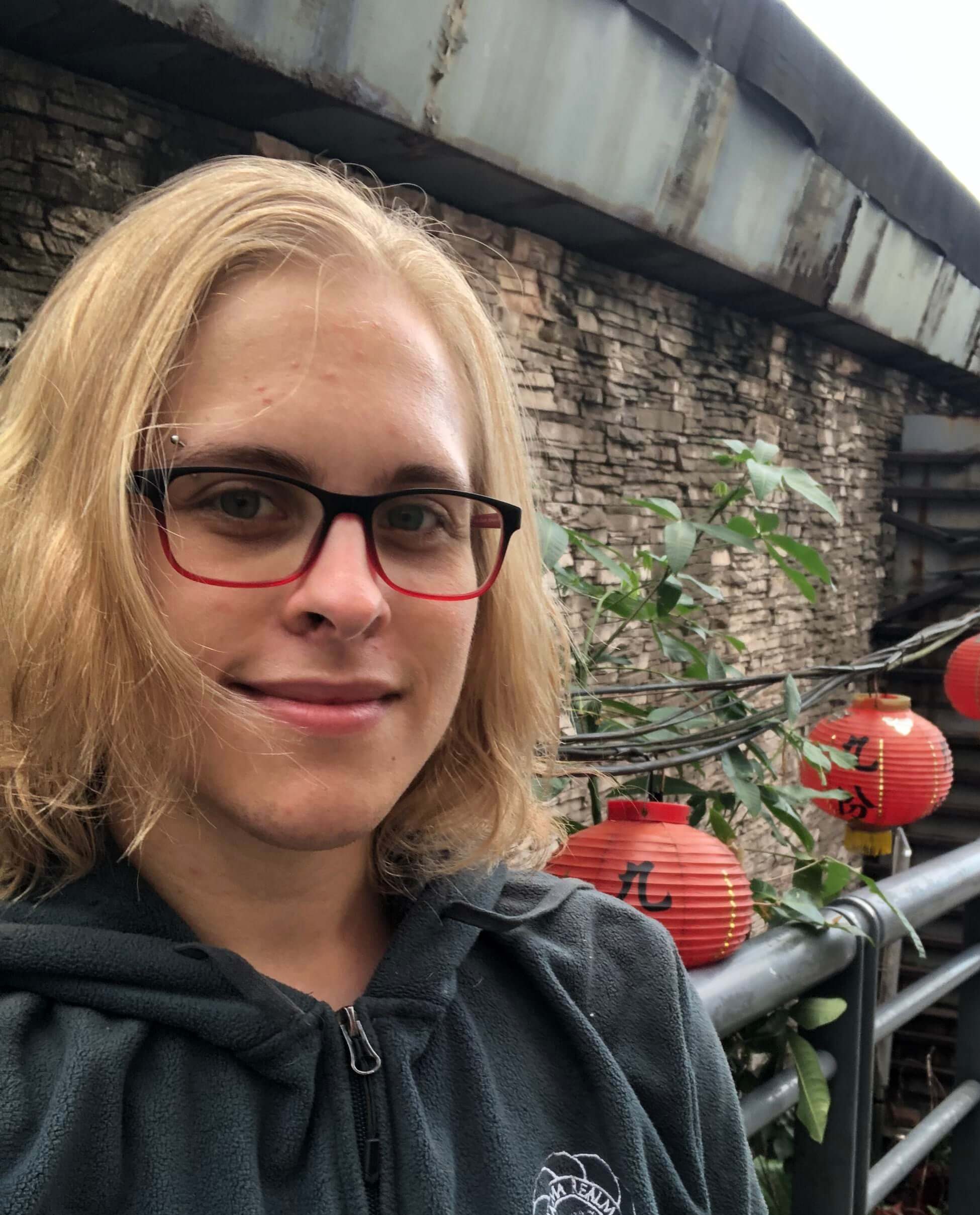Summer Study Abroad in Taiwan
Buddhist Core Texts in Taiwan
Explore Buddhist philosophy and urban phenomenology on a transformative journey in Taiwan.
This program is hosted in collaboration with the Association for Core Texts and Courses (ACTC).
The Program
We invite you to join us in Taipei, Taiwan, for a month-long exploration of Buddhist philosophy and urban phenomenology centered on the study of core texts—including the city itself, read as a text. The texts we read—both Buddhist and phenomenological—will prompt questions about the nature of perception and experience, which we will investigate through conversation, written reflection, and frequent excursions to sites both sacred and secular. The urban landscape will become a laboratory for us to test and refine our understanding of how we build the world within ourselves and between each other.
The program consists of two seminar courses, morning field classes held at sites throughout the city, evening workshops, weekend cultural trips, and a multi-day immersion experience at a Buddhist monastery. You will have regular free periods to explore the city on your own.
The program is credit conferring (3–6 credit hours). We will ask you to prepare and submit an essay after the conclusion of the program.
The Seminars
Taipei as a Text
Joseph R. Allen coins the title of this seminar in his book Taipei – City of Displacement, which serves as an invitation and the starting point of our study in/of Taipei. As a text, Taipei will be read through the phenomenological and architectural concept of orientation and peripatetic explorations (in a mode akin to Walter Benjamin’s flaneur). In addition to Allen’s Taipei, we will read essays by Sara Ahmed (“Orientations Toward Objects”), Dalibor Vesely (“The Nature of Communicative Space”), and Benjamin (“Paris, Capital of the Nineteenth Century”). The readings will cue our gaze, but the “walking”—as well as other modes of moving through the city—is what will make Taipei “visible.” How does Taipei disclose its orientations to us? How does it orient us to experience it in a certain way? What do what we see and experience in the city tell us about our own orientations? How are we dis/oriented in Taipei?
Exploring Perceptions through Buddhist Texts
We will explore a Buddhist framework of perceptions through reading a selection of primary texts and a multi-day immersive experience at a Buddhist monastery. A small but eclectic selection of texts will be read alongside William Waldron’s Making Sense of Mind Only – Why Yogacara Buddhism Matters. Waldron’s book brings into focus a long-standing explanatory tension in Buddhism: without an enduring and unchanging self (anattā), who/what acts and experiences the results of actions (karma)? What roles do our perceptions and actions play in a framework that eschews the extremes of essentialism and nihilism? With Taipei as a “laboratory of experience” of sorts, we will try to use the explanatory model from the Buddhist texts to analyze and reflect on our experiences in a new environment, which in turn inform and deepen our understanding of the model. Readings may include Waldron’s Making Sense, selected discourses from the Pali Canon, and excerpts from the Diamond Sutra and Nāgārjuna’s Fundamental Wisdom of the Middle Way.
Monastery Immersion
Our time in Taiwan includes a four-day immersion at Dharma Drum Mountain World Center for Buddhist Education, an accredited university and active monastery. Nestled in the hills outside Taipei, this scholastic-monastic campus straddles the traditional and modern, the bustle of a global city and the quiet of timeless repose. Our stay there will afford us a direct experience of Buddhist monastic life, as we join parts of the daily schedule and study Buddhist modes of seeing, thinking, and living.
Dharma Drum Mountain is one of the “Four Great Mountains,” four major Buddhist organizations in Taiwan. A carrier of the Chan (Zen) tradition, it promotes the Buddhist teachings through education and environmentalism.
Program Structure
The table below provides the tentative weekly schedule we will follow throughout the program.
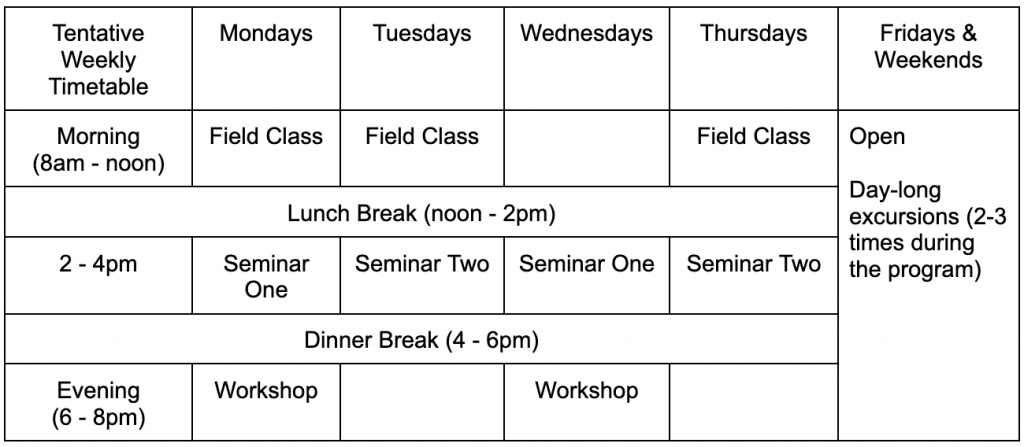
Cost and Expenses
The program fee includes:
- Tuition
- Accommodations
- Scheduled program activities and excursions
You will need to budget for additional expenses including books and supplies, travel, food, a data plan, and personal spending. Below are some estimated expenditures. Please note these may vary depending on the seasonal fluctuations as well as your personal spending habits.
- Airfare: $1000–2000
- Food: $400–600
- Data plan and personal expenditures: $200–400
Accommodations
We will stay in a hotel in central Taipei with ready access to public transit and a range of amenities: restaurants, night markets, shopping, and attractions.
Excursion Sites
Want to get a preview of what you’ll see in Taipei? Here’s a list of sites we might visit.
- Longshan Temple (龍山寺)
- Dalongdong Baoan Temple (大龍洞 保安宮)
- Qingshui Temple (清水巖)
- Jiufen Old Street (九份老街)
- Maokong Gondola (貓空纜車)
- Taipei Public Library, Beitou Branch (台北圖書館北投分館)
- Pingxi Old Street (平溪老街)
- Dadaocheng Wharf (大稻埕碼頭)
- Yangmingshan National Park (陽明山)
- Presidential Office Building (總統府)
- Taipei 101 (台北101)
- Lin Family Garden (林家花園)
- Chiang Kai-shek Memorial Hall (中正紀念堂)
- Keelung Temple Street (基隆廟口)
- National Palace Museum (故宮博物院)
Want to join us this summer in Taiwan?
Frequently Asked Questions
If you want to:
- Study Great Books and Core Texts abroad
- Visit Taiwan and meet new people, discover new places, and experience a new culture
- Enjoy discussion-based seminars, exploratory day trips to cultural sites, and a multi-day immersion in a Buddhist monastic environment
- Explore Buddhist theories of perception and modern theories of the city
Then we encourage you to join us.
No, the program will be conducted entirely in English, and much of Taipei is navigable for English speakers. Mandarin-speaking program staff will be able to assist you if necessary.
About the Program Hosts
The Association for Core Texts and Courses (ACTC) is an international, professional, liberal arts organization dedicated to fostering the use of core texts (world classics and other texts of major cultural significance), in undergraduate education and the development of required or widely taken core programs steeped in such texts.
Dharma Realm Buddhist University (DRBU) is an accredited university dedicated to liberal education in the broad Buddhist tradition—a tradition characterized by knowledge in the arts and sciences, self–cultivation, and the pursuit of wisdom. Its pedagogical aim is thus twofold: to convey knowledge and to activate an intrinsic wisdom possessed by all individuals. Developing this inherent capacity requires an orientation toward learning that is dialogical, interactive, probing, and deeply self-reflective. Such education makes one free in the deepest sense and opens the opportunity to pursue the highest goals of human existence.
Inspired by the Great Books approach as well as the Buddhist principles of wisdom and compassion, DRBU’s education combines rigorous academic study with careful self-investigation. Through reading, writing, discussion, and contemplative exercise, we dialogue with great works of human insight, from ancient to modern, asking how we can apply them in our daily lives, amid the complexities of today’s world.
Learn More
If you’d like to know more about the program, please reach out to us at study.abroad@drbu.edu.
Study Abroad Office
